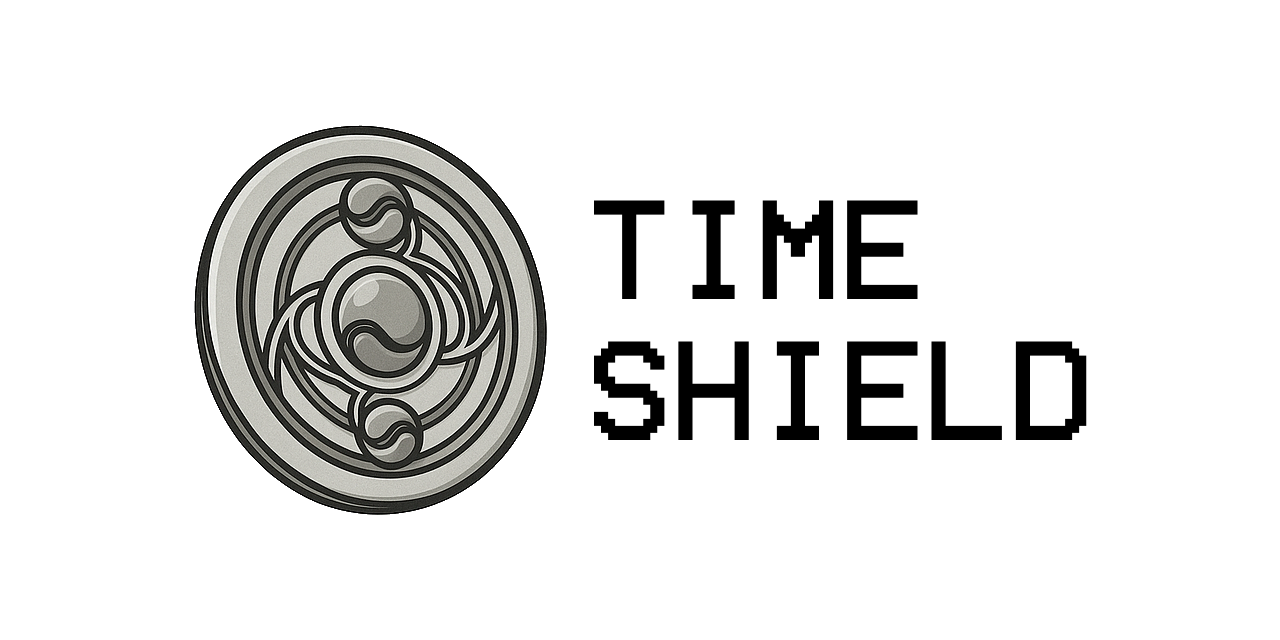Time Shield is a header-only C++ library for working with time. It provides functions for converting time values, formatting dates and many utilities for working with timestamps.
Named after Homura Akemi's "time shield".
See the Russian version for documentation in Russian.
Time Shield was created as a practical tool for handling time in C++ with a
focus on application and engineering tasks. Unlike the standard std::chrono or
more academic solutions like HowardHinnant/date, the library:
- uses simple types (
int64_t,double) to represent time (ts_t,fts_t) making them easy to log, serialize and pass through JSON, RPC and databases; no overloadedstd::chronoclasses; - supports multiple time representations: Unix time, fractional seconds, milli- and microseconds, OLE Automation (Excel), Julian dates;
- includes utilities for rounding, formatting, ISO8601 parsing, working with parts of a timestamp and calculating period boundaries;
- has an extensible architecture—new formats (Julian, OLE, UTC offset) can be added as separate types and modules;
- works even in restricted environments such as MQL5/MetaTrader—no exceptions, STL containers or dynamic memory are required;
- ships as header-only—a single include without build steps or external dependencies;
- uses only standard STL headers and system APIs; modules that depend on
WinAPI (e.g.,
NtpClient) are isolated and do not hinder cross-platform builds.
- Date validation—checks dates for leap years and weekends.
- Time formatting—converts timestamps to strings with standard or custom templates.
- Conversions—translates between second, millisecond and floating time
representations,
DateTimeStructand time zones. - Utilities—fetches current timestamps, computes start/end of periods and works with fractions of a second.
- Time zone conversion—functions for CET/EET to GMT.
- NTP client—obtains accurate time over the network (Windows only).
- MQL5 support—adapted headers in the
MQL5directory allow using the library in MetaTrader. - Compatible with
C++11–C++17.
Compile-time flags in time_shield/config.hpp control optional parts of the
library and report platform capabilities:
TIME_SHIELD_PLATFORM_WINDOWS/TIME_SHIELD_PLATFORM_UNIX— detected target platform.TIME_SHIELD_HAS_WINSOCK— set when WinSock APIs are available.TIME_SHIELD_ENABLE_NTP_CLIENT— enables the optionalNtpClientmodule (defaults to1on Windows).
All public headers place their declarations inside the time_shield namespace.
Use time_shield:: or using namespace time_shield; to access the API.
Some functions depend on WinAPI and work only on Windows (for example,
NtpClientor obtaining realtime viaQueryPerformanceCounter).
ts_tstores Unix seconds in a signed 64-bit integer and provides microsecond precision when converted to other types.fts_tuses double precision floating seconds. Conversions between representations preserve microsecond accuracy.- ISO8601 utilities assume the proleptic Gregorian calendar and do not account for leap seconds.
- Core functions avoid throwing exceptions and do not allocate dynamic memory;
helpers returning
std::stringrely on the caller to manage allocations.
Time Shield follows Semantic Versioning. Patch releases
contain only backward-compatible fixes. Minor versions add
backward-compatible features. Major versions may include breaking changes. The
public API comprises headers under include/time_shield.
After installing the library (e.g., with cmake --install), consume it in a
project with CMake:
cmake_minimum_required(VERSION 3.15)
project(app LANGUAGES CXX)
find_package(TimeShield CONFIG REQUIRED)
add_executable(app main.cpp)
target_link_libraries(app PRIVATE time_shield::time_shield)Vendor the library as a submodule:
git submodule add https://github.com/NewYaroslav/time-shield-cpp external/time-shield-cppThen include it:
add_subdirectory(external/time-shield-cpp)
add_executable(app main.cpp)
target_link_libraries(app PRIVATE time_shield::time_shield)Install via a local overlay port:
vcpkg install time-shield-cpp --overlay-ports=./vcpkg-overlay/portsUse the vcpkg toolchain when configuring CMake:
cmake -B build -S . -DCMAKE_TOOLCHAIN_FILE=/path/to/vcpkg/scripts/buildsystems/vcpkg.cmakeThe port is intended to be upstreamed to microsoft/vcpkg.
Examples can be built with the provided scripts:
build-examples.batfor Windows;build_examples.shfor Linux/macOS;build-cb.batto generate a Code::Blocks project.
Use install_mql5.bat to install the MQL5 files.
| Platform | Compilers | C++ Standards |
|---|---|---|
| Windows | MSVC, ClangCL | 11, 14, 17 |
| Linux | GCC, Clang | 11, 14, 17 |
| macOS | Apple Clang | 11, 14, 17 |
Below are small examples from different sections of the library.
#include <time_shield.hpp>
using namespace time_shield;
ts_t now = ts(); // seconds since epoch
fts_t now_f = fts(); // time in seconds with fraction
int ms_part = ms_of_sec(now_f); // millisecond part#include <time_shield.hpp>
std::string iso = to_iso8601(now); // 2024-06-21T12:00:00
std::string custom = to_string("%Y-%m-%d %H:%M:%S", now);
std::string mql5 = to_mql5_date_time(now); // 2024.06.21 12:00:00
std::string filename = to_windows_filename(now);#include <time_shield.hpp>
DateTimeStruct dt;
TimeZoneStruct tz;
if (parse_iso8601("2024-11-25T14:30:00-05:30", dt, tz)) {
ts_t ts_val = to_timestamp(dt) + to_offset(tz);
}#include <time_shield.hpp>
ts_t cet = to_ts(2024, Month::JUN, 21, 12, 0, 0);
ts_t gmt = cet_to_gmt(cet);#include <time_shield.hpp>
NtpClient client;
if (client.query()) {
int64_t offset = client.get_offset_us();
int64_t utc_ms = client.get_utc_time_ms();
}Full API description and additional examples are available at https://newyaroslav.github.io/time-shield-cpp/
The project is distributed under the MIT license.






